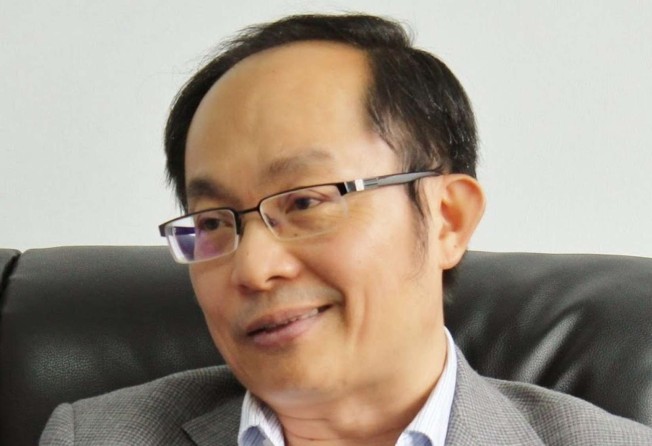Trapped Australia-based academic fears long forced stay in China
Australian permanent resident anxious to return to work at Sydney university but may have to stay for days

An Australia-based professor barred from leaving China after a research trip said on Monday he was very concerned and did not know when he could leave.
Feng Chongyi, an associate professor at the University of Technology Sydney, was stopped from boarding a flight to Sydney at Guangzhou’s international airport on Friday morning.
“I have no idea whatsoever when I can leave China. It seems I need to stay a couple of more days or even longer, I am not optimistic and very concerned,” Feng said. “I am very anxious to return to my work and normal life.
“I am extremely grateful for all the support from all concerned parties who have extended warm support and solidarity,” Feng said, adding that he was in good physical and mental shape.
Feng’s case has again drawn attention to a national crackdown on human rights activists and lawyers since July 2015, known as the 709 crackdown.
Feng, head of China studies at UTS for 11 years, arrived on the mainland about three weeks ago to research the crackdown.
His lawyer, Chen Jinxue, said Feng was prevented from boarding an international flight in Guangzhou for a second time on Saturday for allegedly endangering national security.
The academic is staying at a Guangzhou hotel and is being questioned at length daily by plainclothes national security personnel from Kunming, Yunnan province.
“Judging by China’s human rights conditions today, I am very concerned that Feng might be placed under arrest,” Chen said.
“Technically he is not required to respond to the questioning but he is anxious to return to work in Australia ... But it seems all the cooperation so far is not doing him any good.”
Feng said that before he tried to board the flights, state security officers asked him to take lie-detector tests but he refused.
Feng, 56, was born in Hainan province but his household registration is in Tianjin.
He has been living in Australia for the past 25 years, and is an Australian permanent resident.
He is well known for his research into contemporary politics, the growth of rights consciousness and democratic forces on the mainland.
But Feng is not an Australian citizen and entered the mainland on his Chinese passport, which suggests that authorities could regard him as not entitled to Australian consular support.
A spokesman for the Department of Foreign Affairs and Trade in Canberra said the Australian government was monitoring the case closely and had raised it with senior Chinese officials.
“Under the Australia-China consular treaty, Australian officials can only provide consular assistance to Australian citizens who enter China on an Australian passport,” the spokesman said.
In Beijing, foreign affairs ministry spokeswoman Hua Chunying said she was not aware of the case, but had read media reports suggesting that Feng was a Chinese citizen and held a Chinese passport.